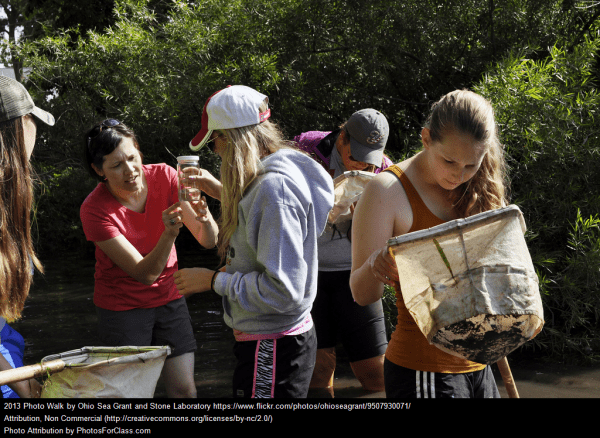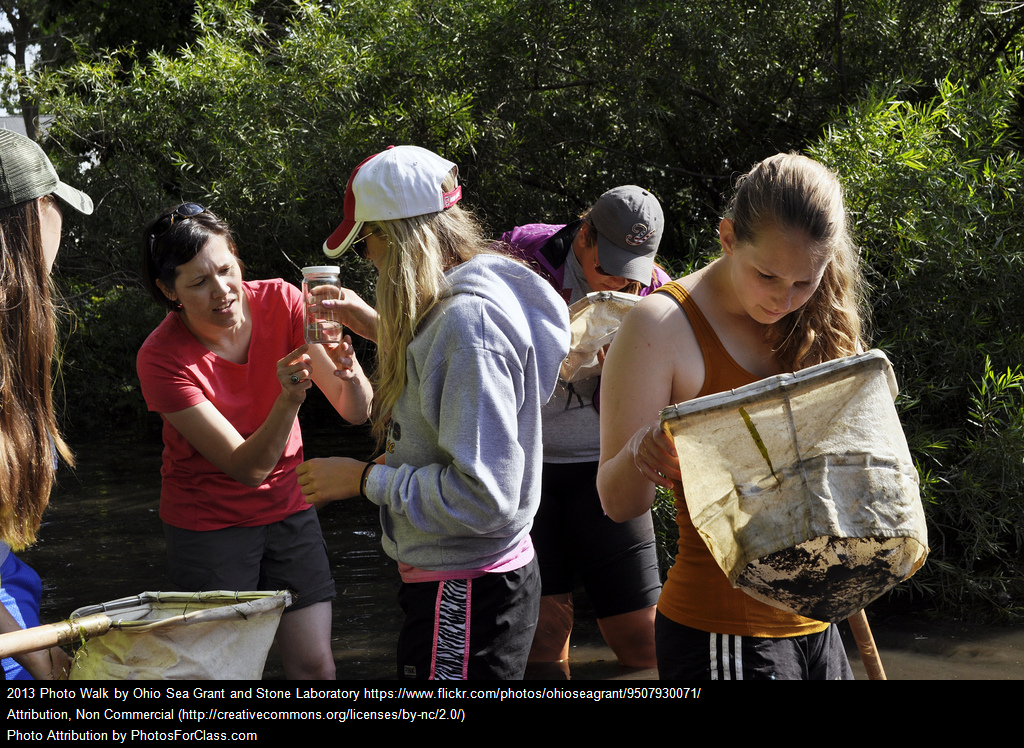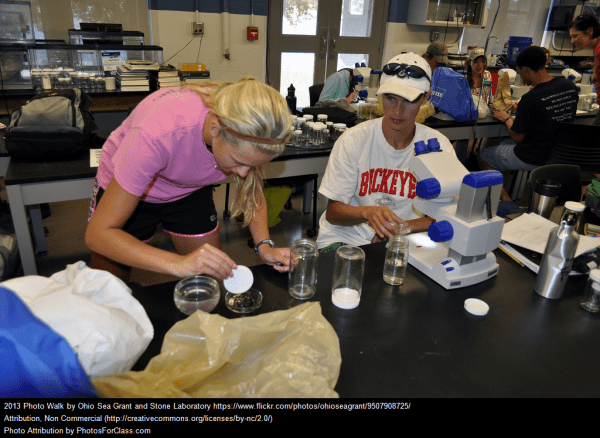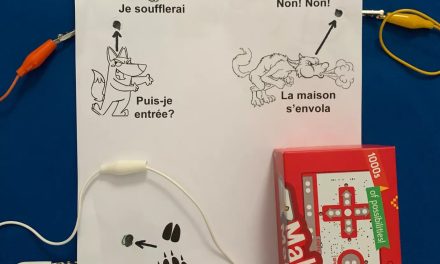 The school year has begun and science teachers are working hard to develop and enact their inquiry-based programs. They are mindful of the fact that they have to not only assess their students’ progress as they carry out the many activities – both of a hands-on and theoretical nature – but also have to prepare their students for end-of-year final exams. In some cases teachers prepare and administer their own exams, trying to be as faithful as possible to the curriculum and making the exam fair for their students. Those teachers unlucky enough to teach a course which has a final exam prepared by the Ministry of Education have the additional nerve-racking task of trying to outguess the exam preparers (usually teachers like themselves). They work with general guidelines but no specific details.
The school year has begun and science teachers are working hard to develop and enact their inquiry-based programs. They are mindful of the fact that they have to not only assess their students’ progress as they carry out the many activities – both of a hands-on and theoretical nature – but also have to prepare their students for end-of-year final exams. In some cases teachers prepare and administer their own exams, trying to be as faithful as possible to the curriculum and making the exam fair for their students. Those teachers unlucky enough to teach a course which has a final exam prepared by the Ministry of Education have the additional nerve-racking task of trying to outguess the exam preparers (usually teachers like themselves). They work with general guidelines but no specific details.
Science teachers face a major dilemma. Nowadays teachers of science and technology are encouraged to take an inquiry-based approach in the classroom. As I described in an earlier post, students should “do” science, not just be told about it. During my visits with teachers, consultants and principals, I was frequently told that teachers worried that they had to give up some constructivist activities they felt were too time-consuming so that they could concentrate on the content they felt would be part of the exam. They worried that the exam would not reflect the inquiry nature of their courses. To some, this forced an unwelcome change of their teaching methodology. Many teachers have told me that traditional final exams encourage memorization of the facts and discourage them from spending the required time on “doing” science. They know how important it is for their students to do well on the exams, so preparing them for that high-stakes science exam becomes their first priority.
The US National Research Council agrees that preparation for final exams in science is harmful for science learning. , “Much of the potentially useful information from assessments … is used in ways that undermine learning and educational improvement.” (NRC, 2001). In a 2012 special edition of the Journal of Research in Science Teaching (JRST) Hickey et al summarized a widespread concern that “External achievement tests undermine the efforts of schools to focus on deeper conceptual understanding” (Hickey, D. T., Taasoobshirazi, G. and Cross, D. 2012).
So how should students be assessed in inquiry-based science programs? Is there a place for exams? If so, what should they look like? What about practical exams, projects, quizzes, interviews, observations, …? Should they “count” in the final marks? There is much literature written about the purposes of evaluation too. Should it be formative (to enhance the learning process) or summative (to see what the student knows)? Or both? Research seems to show that there is a place for many different assessment methods in a science teacher’s repertoire. In fact the greater variety of methods used, the more likely it is that the overall assessment of whether students have met the objectives will be valid.
According to Pellegrino, J. W. (2012), “We are moving beyond vague terms such as “know” and “understand” to more specific statements like analyze, compare, explain, argue, represent, predict, etc. in which the practices of science are wrapped around and integrated with core content.” He talks about 3 aspects of assessment that should be included: comprehensiveness (a wide variety of evidence), coherence (compatibility of teaching and testing), and continuity (measuring student progress over time). So showing knowledge of core content is not enough. We need to give students the opportunity to demonstrate those other inquiry skills. How? Here are some ideas which can help – both formatively and summatively:
Formative: Assessments should be used to enhance the learning throughout the year. This should include:
- Observations of student work as well as interviews and continuous feedback.
- Self-assessment and peer evaluation should be incorporated into this process.
Summative: The final grade (report card)
- should reflect how well they have met the objectives (attained the competencies) at the time of the report (not how well they did, say, six months ago). Though we want to measure a student’s progress over time we must be careful not to penalize them for misunderstandings from the past – which may have been overcome since then.
- should include a wide variety of pieces of evidence: performance tests (eg. lab exam), written tests, discussions which show student comprehension, project work, … in short, all evidence of student performance and understanding.
Thus multiple measures give students various ways and opportunities to demonstrate their knowledge and understanding and enhance the validity and fairness of the assessment process.
So how do you assess your students in science? Have you figured out how to assess their inquiry skills and still prepare them for their final exams?
References:
Hickey, D. T., Taasoobshirazi, G. and Cross, D. (2012), Assessment as learning: Enhancing discourse, understanding, and achievement in innovative science curricula. J. Res. Sci. Teach., 49: 1240–1270. doi:10.1002/tea.21056
National Research Council. (2001). Classroom assessment and the national science education standards. Washington: National Academies Press.
Pellegrino, J. W. (2012), Assessment of science learning: Living in interesting times. J. Res. Sci. Teach., 49: 831–841. doi: 10.1002/tea.21032







Evaluation drives curriculum. I believe that teachers will stop saying that inquiry-based is too much time consuming when they will be convinced that standartised and provincial tests indeed measure comptence in these things.
Of course it’s only certain Sec 4 final exams which are controlled by the MELS. Schools and boards are free to make all the others more inquiry compatible.
Excellent observations and recommendations, Ken. I especially like the point about how final evaluation “should include a wide variety of pieces of evidence”—- that’s compatible with science, is it not?
But how do we get the decision-makers of the bureaucracy to listen to you? How do we get so many teachers from not imitating electrons; our ends-over-means educational system encourages us to take the path of least resistance.
Interesting comments Enrico. I wonder if the current final exams could be constructed to be more inquiry-based.
Definitely. For example in chemistry, if the concept being tested is the gas pressure-temperature relationship, instead of exclusively featuring number-crunching questions, alternatives can include:
1) a) draw an experimental setup that would help you discover the ideal gas relationship between P and T at constant volume and for a constant number of molecules.
b) Would the density of the contained gas have an effect on the slope of the line obtained from plotting the data?
c) What are some some possible error sources? Is it important to have a metallic container for the gas? Why or why not?
2) If catalysts is the topic, mention that an H2O2-dissociating enzyme is found in potatoes, and then ask students for a simple way of experimentally checking whether or not the catalyst is consumed in the reaction.